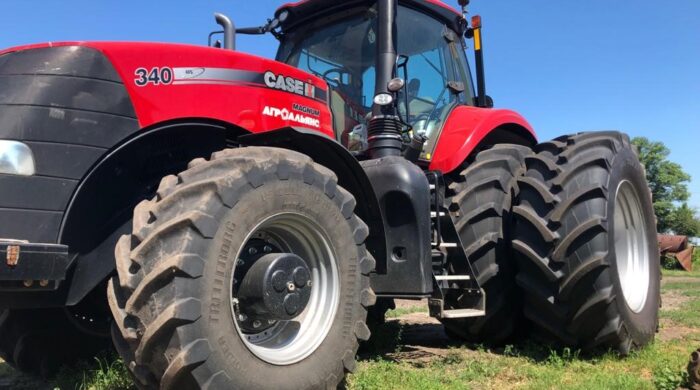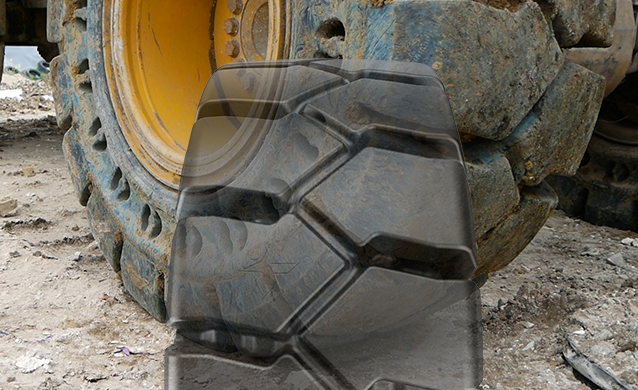MAXAM on Sidehill +11° Slope (+20% Grade) Tire Adjustments
AG Technical Bulletin – If a producer is working fields with +11° slope (+20% grade), what changes should be made in tire selection (Bias-Radial-IF/VF CFO), air pressure, and operator procedures to ensure optimum performance and minimal downtime?
MAXAM is focused on delivering a relevant range of Standard and VF tires engineered to meet the evolving needs of farmers and growers in any surface or field operation. Our agricultural radial tires are grouped by aspect ratio to meet each equipment’s needs including AGRIXTRA 85, AGRIXTRA 70, AGRIXTRA 65, AGRIXTRA XL, AGRIXTRA H, AGRIXTRA N, and FLOTXTRA. Each of our radial tires is designed to operate on the road or in the field based on the speed and load or weight being carried. The “cold” inflation air pressure or air pressure management is the key to optimizing how the tire will perform in any equipment, speed, load, or surface application. Sidehill or hillside applications require some adjustments to the cold inflation air pressure to allow radial tires to deliver optimal performance because of the exceptional additional physical forces working on the tire. The three primary reasons to increase cold inflation air pressure when in sidehill or hillside operations are as follows:
- Improved tire seating on the wheel – provides stronger bead seating pressure against the flange of the wheel (seating pressure)
- Increased air reduces sidewall flexing as weight transfer occurs as the tires work up or down / or travel laterally across a hillside (weight transfer)
- Ensure vertical footprint pressure pushing the tread band onto the operating surface (traction)
The challenge for any farmer or grower is recognizing the impact of his operation’s hillside or sidehill grade level and what offsets he needs to consider in the effective and safe performance of his equipment.
The engineering or math to understand how the grade or slope impacts a tire is provided below:
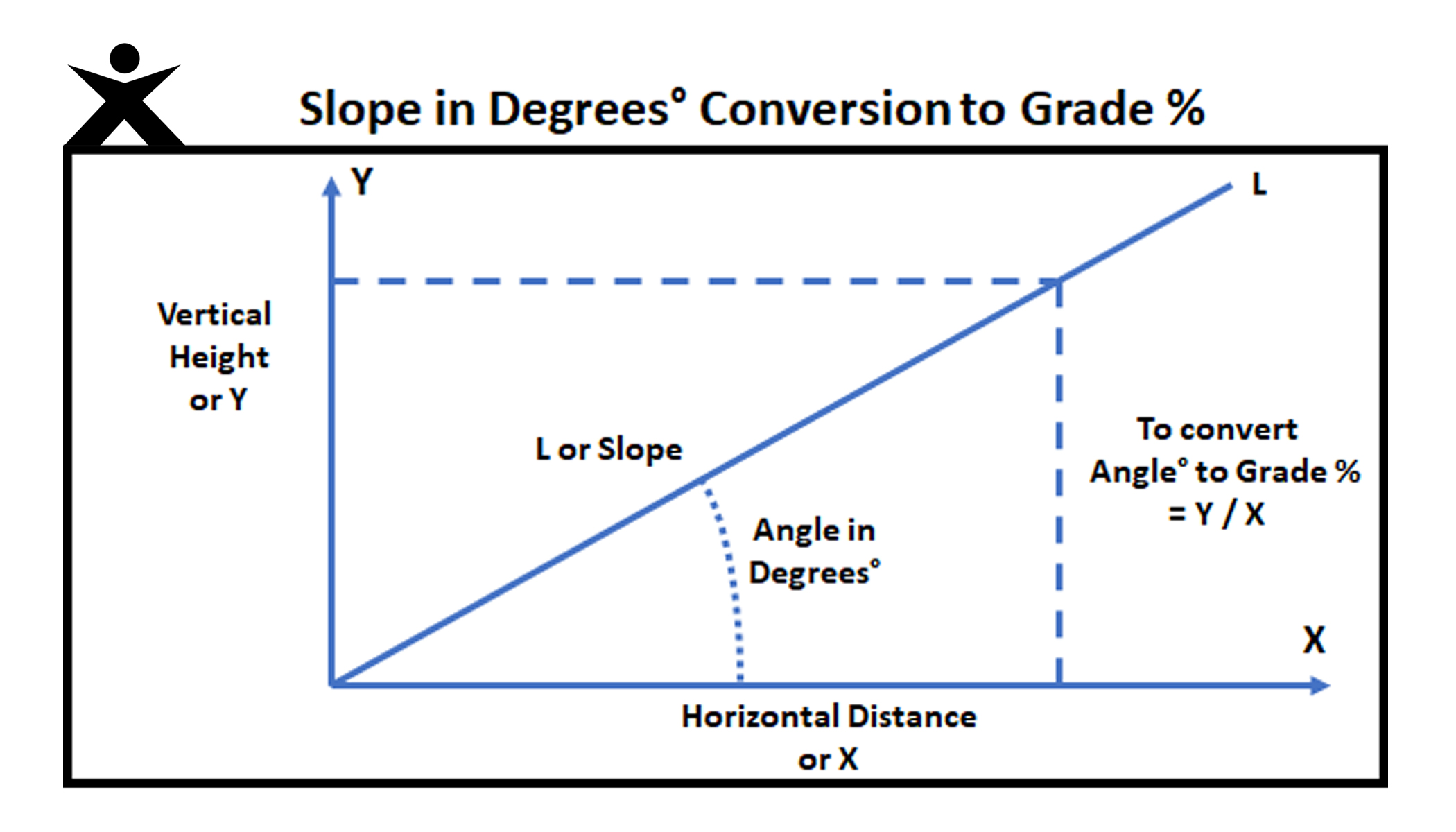
- Tangent of Slope Angle or Grade = Vertical Rise / Horizontal Distance.
- Percent Grade % = 100 x Tangent of Slope Angle.
- Examples:
- 15° Slope is a 26.8% grade
- 20° Slope is a 36.4% grade.
- 30° Slope is a 57.7% grade.
The impact of the grade % and/or “steepness” of the angle has to be accounted for to ensure that the tire’s cold inflation air pressure is adjusted to meet the additional forces (seating pressure, weight transfer/traction) when operating safely on any hillside or sidehill operation.
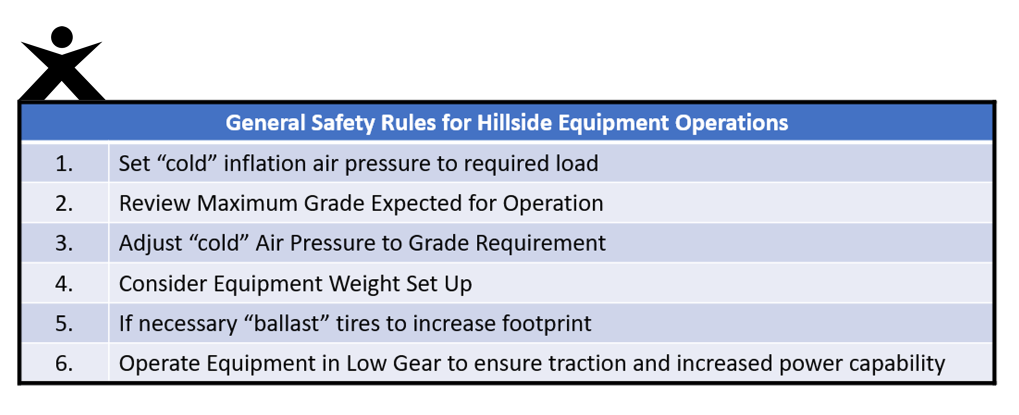
The below table and safety rules illustrate MAXAM’s recommended additional air pressure considerations required to operate either standard or VF tires on any agricultural equipment based on the grade % or slope/steepness of the operation:
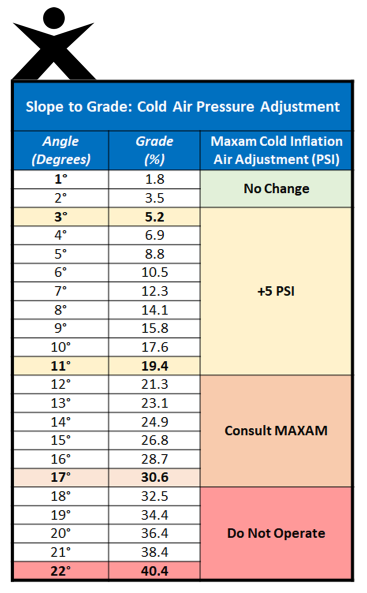
- Up to 20% grade increase cold air pressure by +5 PSI versus normal cold inflation operating air pressure
- Above 20% grade up to 30% grade please consult MAXAM for necessary Cold Air Pressure Adjustments
- It is recommended not to operate equipment above +30% grade due to safety concerns relating to equipment stability and risk of rollover.
Using the right air pressure on any field or hillside operation will ensure you can achieve maximum utilization of your tires! Backed by a world-class warranty program our radial agricultural tires are designed to deliver the value our customers expect from MAXAM. Try the MAXAM advantage in your field today!
For additional information, contact your local representative or visit us at maxamtire.com.


